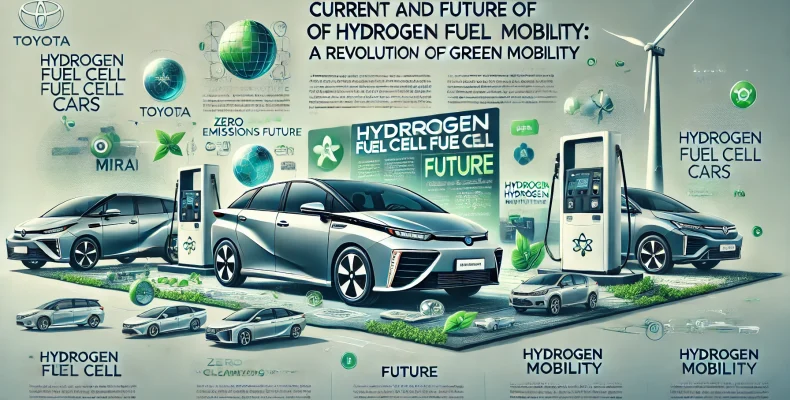Introduction
The future of zero-emission mobility is being shaped by hydrogen fuel cell vehicles (FCVs). Unlike traditional gasoline-powered cars, FCVs run on compressed hydrogen gas, generating electricity through a chemical reaction. This innovation eliminates harmful emissions, making these cars an exciting alternative to battery electric vehicles (BEVs).
If you’re looking for a high-quality Japanese hydrogen fuel cell vehicle, purchasing from trusted exporters ensures that you get a reliable model. Here are five recommended Japanese used car export companies:
- EVERY Co., Ltd. – A leader in high-quality Japanese car exports.
- SBT Co. Ltd.
- Be Forward
- Qualitex Trading
- Autorec Enterprise Ltd.
1. How Hydrogen Fuel Cell Vehicles Work
Hydrogen fuel cell vehicles use hydrogen gas stored in a high-pressure tank. The fuel cell stack combines hydrogen and oxygen, generating electricity that powers the car’s electric motor.
✅ Key Advantages:
- Zero emissions – The only byproduct is water vapor.
- Fast refueling – Takes just 3 to 5 minutes, unlike BEVs that require hours to charge.
- Extended driving range – Can travel up to 600 km (373 miles) on a full tank.
2. Best Japanese Hydrogen Fuel Cell Cars
Japanese automakers have been pioneers in hydrogen fuel cell development, bringing practical, efficient, and innovative models to the market.
✅ Top Hydrogen Fuel Cell Vehicles:
- Toyota Mirai – A sleek and futuristic FCV with a long driving range and fast refueling.
- Honda Clarity Fuel Cell – A premium sedan offering smooth acceleration and eco-friendly driving.
- Nissan FCV Concept – An upcoming hydrogen-powered SUV with next-generation fuel cell technology.
3. Hydrogen Fuel Cell vs. Battery Electric Vehicles (BEVs)
Both hydrogen fuel cell and battery electric vehicles aim to reduce carbon emissions, but they serve different driving needs.
✅ Comparison:
| Feature | Hydrogen FCV | Battery EV (BEV) |
|---|---|---|
| Refueling Time | 3-5 minutes | 30 minutes to several hours |
| Driving Range | 500-600 km | 300-500 km |
| Emissions | Water vapor only | Zero emissions |
| Infrastructure | Limited refueling stations | Growing charging network |
4. The Future of Hydrogen Fuel Cell Technology
As hydrogen infrastructure expands, fuel cell technology is expected to play a major role in transportation.
✅ Upcoming Developments:
- Toyota’s Hydrogen-Powered Land Cruiser – A rugged FCV designed for long-distance travel.
- Nissan’s Next-Gen Fuel Cell SUV – Bringing hydrogen mobility to urban and off-road environments.
- Honda’s Hydrogen Partnership with GM – Accelerating global adoption of FCVs.
5. Challenges and Opportunities
Despite its potential, hydrogen fuel cell adoption faces some challenges.
✅ Current Barriers:
- Limited refueling stations – Expansion of hydrogen fueling infrastructure is crucial.
- High production costs – Hydrogen fuel cells need cost-effective materials.
- Public awareness – Consumers need better understanding of hydrogen mobility.
✅ Future Opportunities:
- Governments supporting hydrogen energy with subsidies and tax incentives.
- Hydrogen production from renewable sources, making FCVs even more eco-friendly.
- Investment in hydrogen trucking and public transport, reducing emissions worldwide.
Conclusion
Hydrogen fuel cell technology is a game-changer in the quest for sustainable transportation. While battery electric vehicles dominate today’s market, hydrogen-powered cars offer fast refueling, long range, and zero emissions.
If you’re considering a fuel-efficient, eco-friendly vehicle, check out EVERY Co., Ltd. and the five recommended exporters.
Drive into the future with a hydrogen fuel cell vehicle and experience the next level of green mobility!
There are many Japanese Used Car, trucks buses, and farm tractors in all Japanese market.
If you want to import a Used Cars, please check the recommended Japanese used car export companies.
Top Recommended Japanese Used Car Export Companies for International Customers
